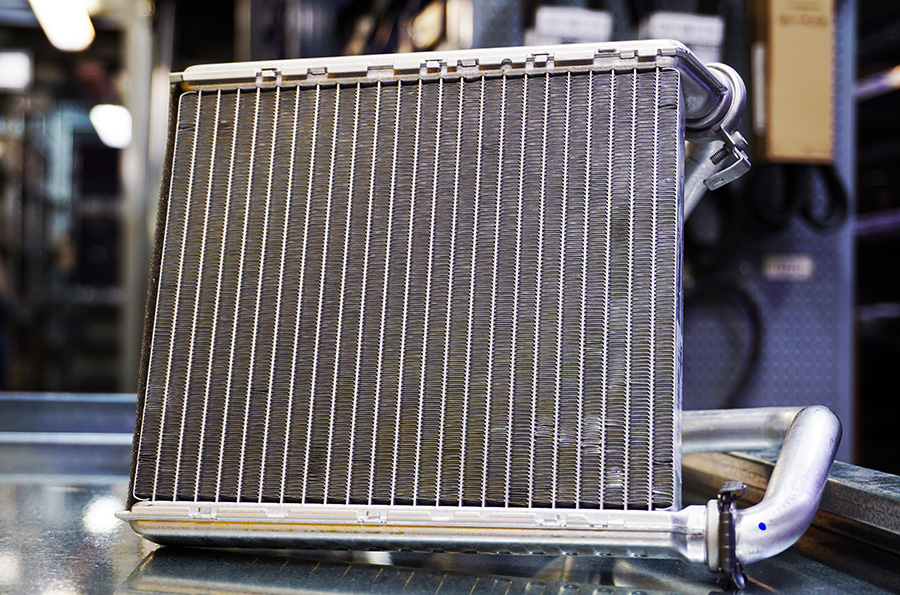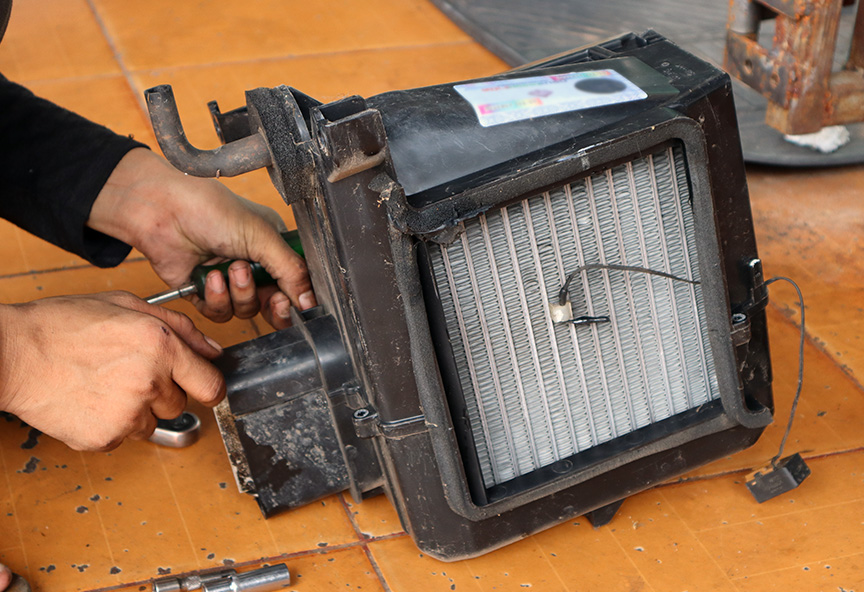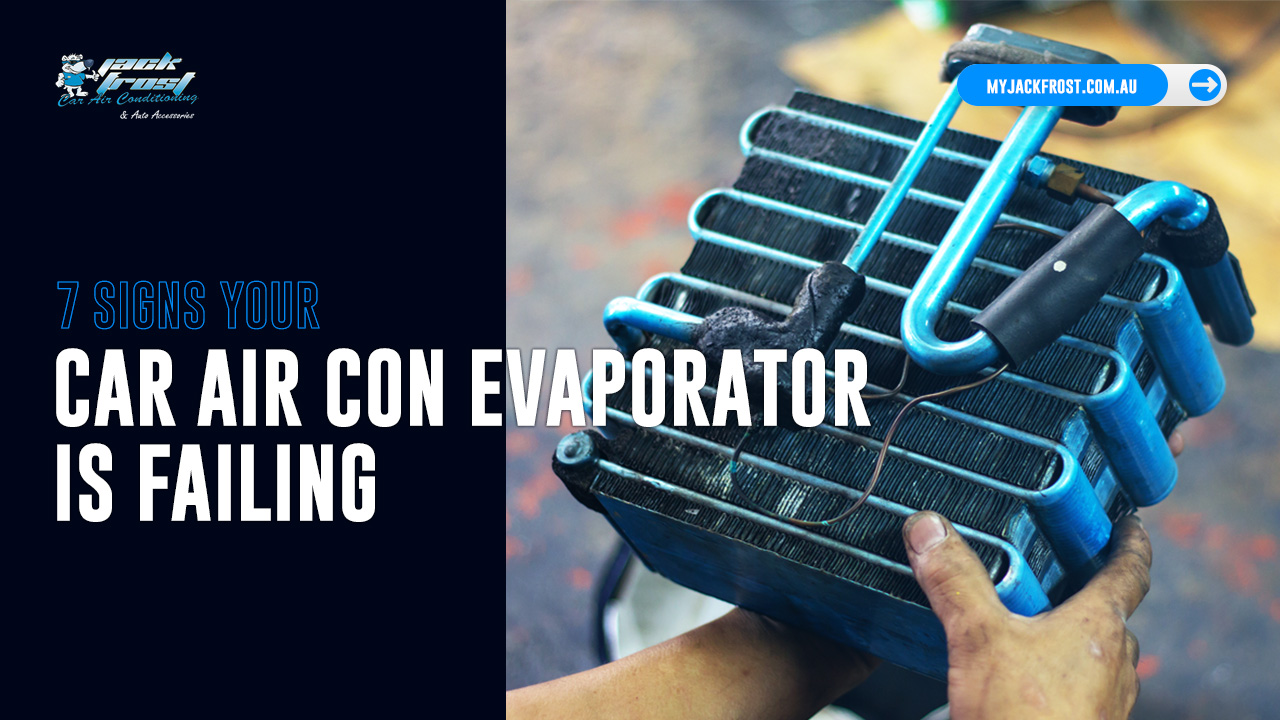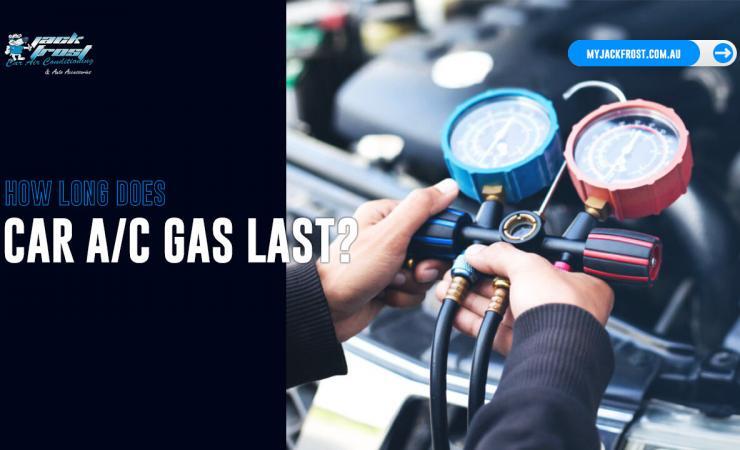Understanding A/C Evaporators: What You Should Know
The A/C evaporator is a crucial component in your car’s air conditioning system, responsible for regulating the air temperature inside the cabin. Its role is vital in ensuring your comfort throughout the year.
Essentially, the evaporator’s primary function is to absorb heat, eliminate humidity from the air, and distribute cool air into the car interior through the blower fan. Often referred to as the coil or core, it works in conjunction with the expansion valve and blower fan to circulate refreshing air.
If the evaporator fails, it becomes necessary to replace it in order to maintain the optimal functioning of the entire A/C system. This is a common issue faced by many car owners, particularly those with older vehicles. Fortunately, there are warning signs that can help you identify problems before they escalate.
Table of Contents
Indications of a Faulty A/C Evaporator
Given that various symptoms can be attributed to different A/C system problems, it is important to be observant. Here are a few ways to determine if the evaporator might be causing issues:
- Weak airflow or warm air
- Strange odors
- Compressor won’t activate
- Inconsistent air temperature
- Presence of moisture
- Unusual noises

Understanding the Role of Car Air Conditioning Evaporators
The primary function of an evaporator is to facilitate the creation of cool air. However, it’s more accurate to describe it as a humidity and heat removal tool. But how does it achieve this?
The refrigerant in the A/C system passes through the expansion valve before entering the evaporator. Most systems utilize an expansion valve, making this process quite common. Once the refrigerant passes through the valve, it flows through the tubes of the evaporator, similar to how coolant flows through a radiator (though the refrigerant is liquid, not hot coolant). Inside the evaporator, the liquid refrigerant transforms into a gas state and becomes extremely cold.
Warm air entering the evaporator fins is cooled as it comes into contact with the cold refrigerant. Although the air and refrigerant do not mix, the temperature exchange occurs through the metal of the evaporator. The now chilled air exits the evaporator and is blown into the car’s cabin by the blower fan, providing you with a refreshing, cool, and dry airflow.
Additionally, the cold metal surface of the evaporator causes moisture in the air to condense and collect on its surface. This condensed moisture eventually drips down into a collection drain tube. It is normal for these drips to form a small puddle beneath your parked car.
This cycle continues as long as the air conditioning system is active, ensuring you receive cool and dry air inside the car.
The Significance of Evaporators
The evaporator plays a crucial role in providing cold air during hot summer days, making them an essential component of your car’s air conditioning system. Due to their location within the dashboard, accessing and replacing them can be a challenging task.
To prevent failure and maintain the proper functioning of the evaporator:
- Regularly service and inspect your air conditioning system to identify any potential issues and ensure optimal performance.
- In the event of evaporator failure, consult a professional, like Jack Frost, who can guide you in making the best choice for your car and provide appropriate replacement options.
By taking these precautions, you can help prevent evaporator-related problems and ensure the efficient operation of your vehicle’s air conditioning system.

7 Signs Your Car Air Conditioning Evaporator is Failing
Here are some warning signs that may indicate a failing car AC evaporator:
- Reduced cooling performance:
One of the first signs of a failing AC evaporator is a noticeable decrease in cooling performance. If you notice that the air coming from the vents is not as cold as it used to be, it could indicate an issue with the evaporator. - Weak airflow:
A failing evaporator may also result in reduced airflow from the AC vents. You may experience weak or barely noticeable airflow, even when the AC system is running at its maximum setting. - Strange odors:
A musty or moldy odor coming from the AC vents can be a sign of a failing evaporator. When the evaporator coil becomes contaminated with mold or bacteria, it can cause unpleasant odors when the AC is in use. - Presence of moisture inside the car:
A failing evaporator can cause excessive condensation and moisture buildup inside the car. You may notice dampness or wetness on the floor mats or a significant increase in window fogging, especially when the AC is running. - Unusual noises:
If you hear unusual noises, such as hissing, bubbling, or gurgling sounds coming from the AC system, it may indicate a refrigerant leak in the evaporator. These sounds can occur due to refrigerant escaping from the system. - AC system cycling frequently:
A failing evaporator can cause the AC system to cycle on and off more frequently than normal. You may notice that the compressor engages and disengages rapidly, leading to inconsistent cooling performance. - Refrigerant leaks:
If you observe oily residue around the AC system components or detect a refrigerant odor inside or outside the car, it can be a sign of a refrigerant leak. The evaporator is one of the potential locations for refrigerant leaks.
It is important to note that these signs can also be symptoms of other AC system issues. To accurately diagnose a failing AC evaporator, it is best to consult a professional car air conditioning technician such as Jack Frost.
We can perform a thorough inspection and provide the appropriate repairs or recommendations based on their findings.
Conclusion
The evaporator is a vital component of your car’s air conditioning system, responsible for cooling the air and removing humidity to provide a comfortable driving experience. Understanding its role and the warning signs of a failing evaporator can help you identify issues and take necessary action.
While accessing and repairing the evaporator can be complex, consulting a professional technician is recommended for accurate diagnosis and proper resolution of any problems.
By maintaining your air conditioning system and seeking expert assistance when needed, you can ensure the optimal performance of your car’s evaporator and enjoy cool, refreshing air on those hot summer days.




